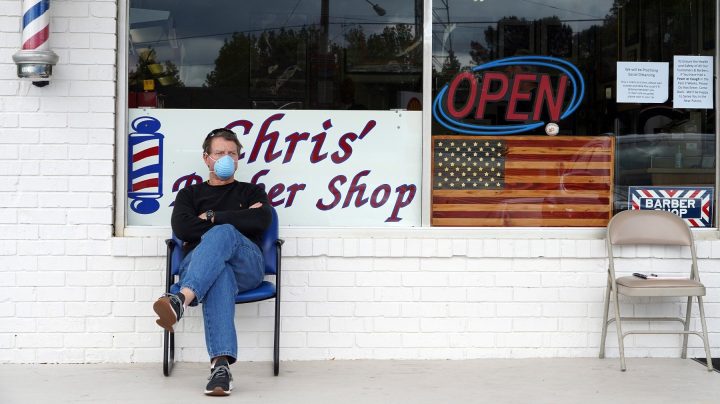
Workers forced to choose between feeling safe and jobs
Workers forced to choose between feeling safe and jobs

President Donald Trump said this morning that his coronavirus task force will continue its work but with a focus on “safety and reopening the country.”
More and more businesses are preparing to reopen. Gap, for example, plans to open as many as 800 stores by the end of the month, and some stores in Texas could open as early as this weekend.
More than 40 states have announced plans to lift restrictions, clearing the way for more people to return to work, whether they feel comfortable returning or not.
Michelle was furloughed in March from her job as a volunteer coordinator at a nonprofit in Dallas (we’re not using her last name because she fears reprisal from her employer for speaking out).
She was asked to come back to work on April 27, but she’s still at home. She has a 2-year-old, and, under the Coronavirus Aid, Relief and Economic Security Act — the relief package passed in late March — she’s able to take more time off at two-thirds of her salary. She asked for three weeks.
“But I don’t really know what’s going to happen at the end of the three weeks, if those will be extended,” she said. “I know some things are opening back up, but I don’t really like the idea of being a guinea pig.”
She fears getting sick when she does goes back to work.
Michelle figured out a way to extend her benefits, even though she was called back to work. Of course, not everyone has that option.
“When you become unemployed, historically, you’ve had to identify that you are actively seeking employment,” said Tom Smith, associate professor of finance at Emory University’s Goizueta Business School.
“So if you have work available, you’re not really considered unemployed, right?” Smith said. “You’re making a choice. You typically would be denied unemployment insurance if you have an opportunity to go back to work and you choose not to.”
Eventually, unemployment benefits are going to run out, and people need to work. But Michele Evermore, senior policy analyst at the National Employment Law Project, said that’s going to put many people in a tough spot.
“One could make the argument that going back to work in a COVID environment is no longer suitable, that the working conditions aren’t similar to what they were when they worked at the job before,” Evermore said.
As for Michelle in Dallas, she’s unclear about her work future.
“I don’t have any volunteers to manage. So I don’t really know what things are going to look like when I do go back eventually,” she said.
She said even though she was called back last week, she’s worried she’ll eventually be laid off.
There’s a lot happening in the world. Through it all, Marketplace is here for you.
You rely on Marketplace to break down the world’s events and tell you how it affects you in a fact-based, approachable way. We rely on your financial support to keep making that possible.
Your donation today powers the independent journalism that you rely on. For just $5/month, you can help sustain Marketplace so we can keep reporting on the things that matter to you.












